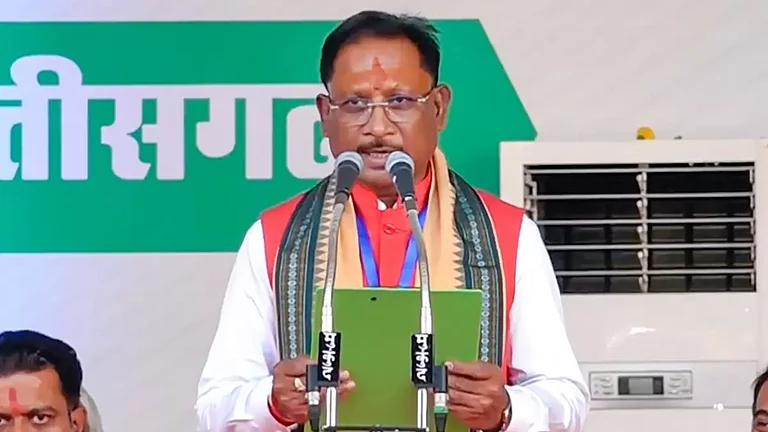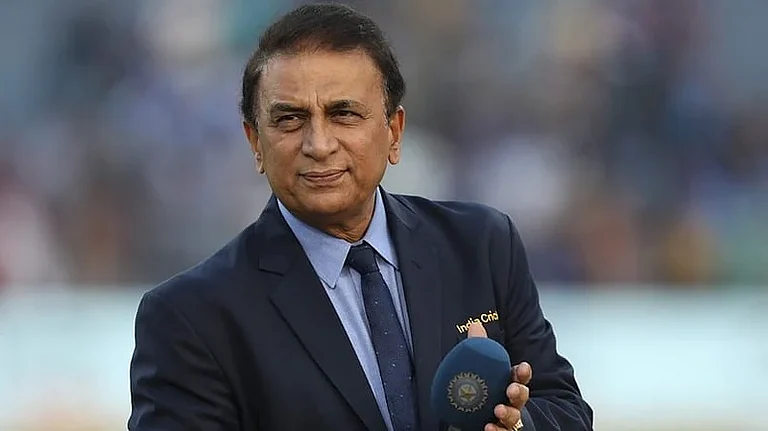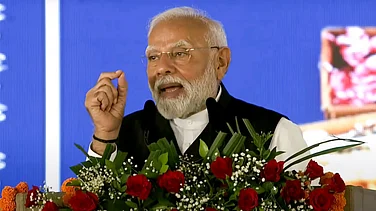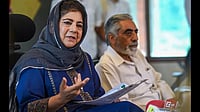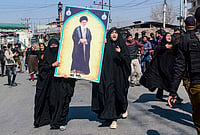Naxalism has been an internal threat for India for decades now. The ideology is rampant in the tribal areas and finds support from the locals who are vulnerable due to the lack of development in their region. Every government has had combating Naxalism on their priority list but the threat hasn’t been neutralized yet. Although in last few years, India has seen fewer attacks by Naxal-Maoist outfits. Some say it is due to the aggressive approach of the current government at the centre. Yesterday’s large scale encounter operation was part of this aggressive approach.
On April 16, Chhattisgarh’s Bastar region witnessed a large scale operation by the security forces. It has brought back the issue in the news that too this close to the general elections. The problem of Naxalism in the country is spread over many states, especially in tribal areas.
What has been the Modi government's approach in dealing with this long-standing problem? Let’s take a brief overview:
The Latest Operation
On April 16, Border Security Force (BSF) and Kanker’s District Reserve Guard (DRG) led a joint action based on inputs from Ministry of Home Affairs (MHA). 29 naxalites were killed in the operation while three security personnel were injured, who were later reported as out of danger.
The operation took place in Hapatola forest which falls under the jurisdiction of Chhotebethiya police station. The operation came just three days before the first phase of general elections 2024. The region will vote on April 19, in the first phase for Bastar constituency and for Kanker in the second phase on April 26.
This was the biggest anti-naxal operation of Chhattisgarh since its inception in 2000. Some senior cadres are also among the 29 killed yesterday. They belonged to the banned outfit CPI (Maoist); the organisation was outlawed under the Unlawful Activities (Prevention) Act or the UAPA in 2009 under the United Progressive Alliance government.
Chhattisgarh Deputy Chief Minister, Vijay Sharma, who also heads the Home ministry in the state, called this encounter a successful “surgical strike” and gave credit to the security forces.
Union Home minister, Amit Shah, in a post on X, congratulated the security forces for the successful operation. He also said ‘Naxalism is the enemy of development, peace and the bright future of youth…Because of government’s offensive policy and the efforts of security forces today naxalism has been confined to a small area’. He also mentioned that in PM Narendra Modi’s leadership the government is committed to end naxalism in India.
Modi Government’s Approach to Combat the Problem
Modi government has had an aggressive approach to Naxalism. In his first ever speech as PM on Independence-day in 2014, he urged the Maoists to let go of the violence path and join the mainstream. He gave example of Nepal, how the extremists had renounced the guns to participate the parliamentary democracy system.
However, in 2015, the centre in consonance with its policy to end centrally funded schemes transferred Additional Central Assistance (ACA) for Naxal affected areas to states. There was no budget allocated for the ACA in the year 2015-16. ACA focuses on creating public infrastructure in the Naxal affected areas and was instrumental to combat insurgency in the UPA II era.
Naxal operations were hit badly when demonetisation was implemented in 2016. More than 500 Maoists and their sympathisers surrendered in the month of May alone. Unavailability of cash was the main reason which forced them to surrender. It was the highest number of surrender in a month ever.
According to Union Home Ministry data, attacks or actions by left-wing extremists declined by 60% in 2017 compared to 2009. In February that year, Enforcement Directorate (ED) had attached Rs 86 Lakh under the PMLA; the money belonged to a top Maoist leader, Vijay Yadav aka Badka Bhaiya. This was first such action in the country.
After the Sukma attack in 2017, in which 25 CRPF personnel were killed, the then Home Minister, Rajnath Singh held a high level meeting to review the Left Wing Extremism (LWF) situation in ten states affected by it. The meeting was attended by the then CM(s) and minister(s) of these states. Singh said that the new strategy to counter the problem was to financially chocking the organisation.
Singh announced the SAMADHAN doctrine to fight the LWF. The MHA had suggested use of trackers and bio-metrics for smart guns, Joint Task Forces for inter-state operations, better inter-state coordination, more helicopters for the naxal-hit areas, fortified police stations in naxal affected areas etc.
Following yesterday’s operation, Home Minister, Amit Shah, said that “we will uproot Naxalism in India”. He also recalled that since the beginning of 2024, around 80 naxalites have been killed in Chhattisgarh alone, whereas 125 were arrested and 150 have surrendered.
Different Political Approaches
Senior Congress, Sonia Gandhi, while addressing a rally in Madhya Pradesh, referred to naxalites as “misguided youth” who needs to be brought back into the “mainstream”. However, after the Sukma attack in 2013 in which almost all of the top leadership of the party in Chhattisgarh was killed, Jairam Ramesh termed naxalites as ‘terrorists’.
On the other hand, the BJP has always had a more aggressive approach towards Naxalism more so since 2014. In February 2024, Home Minister, Amit Shah said that because of ‘visionary policies of PM Modi left wing extremism has lost its breeding ground’ in India. He also said that their government has adopted a holistic approach of development and security in tribal areas.
In 2010, Communist Party of India (Marxist) general secretary, Sitaram Yechury, while reacting to the then TN Chief Minister M. Karunanidhi’s statement that leftist have a ‘natural affinity’ with the Maoists, said that the party fought Naxals earlier and were fighting Maoists then. He also said that the party is campaigning among people to explain to them that the Maoists are against the parliamentary democracy system. The party also believes that the problem of naxalism-maoism should be ‘tackled politically’.
The Modi government has maintained that it deals with left wing extremism with multi prong approach of development and security operations; all the while cutting their financial sources to disarm them in the longer term.



